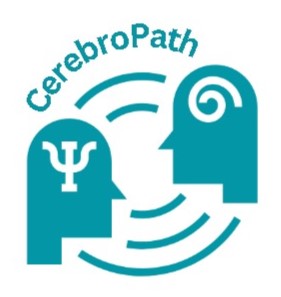SEPTEMBER 2, 2024

What Does a Neuropsychologist Do?
Ms. deeksha parthsarthy
Neuropsychologist
If you are considering becoming a neuropsychologist, there are a lot of things you can do in future, but even within neuropsychology, there are sub-domains or further specializations.
A Master’s degree is a bare minimum you need to be called a neuropsychologist, particularly in India, where at present, there are no regulations or guidelines governing the field of Neuropsychology specifically. After completing your Master’s in Neuropsychology, you can work as a part of a team of medical and allied healthcare professionals dedicated to providing care and treatment for patients with neurological or neuropsychiatric problems. Your job therein would be to assess the cognitive and neuropsychological functioning and provide cognitive rehabilitation for patients presenting with various concerns, including but not limited to, memory problems, head injuries, stroke, epilepsy, dementia, depression, anxiety, and psychosomatic problems. If you work with children, this list would also include ADHD, ASD, intellectual disability, learning disability, cerebral palsy, Down Syndrome, etc.
After conducting thorough assessments, neuropsychologists generate a profile of strengths and deficits for each patient and tailor cognitive rehabilitation strategies to their unique needs. Additionally, neuropsychologists with appropriate knowledge and training can also provide neuroscience-informed therapy to patients presenting with various psychosocial and emotional issues.
But that’s not all. There’s much more you can do as a neuropsychologist. The range of services you can provide as a professional in any healthcare field depends on the level of training and specialization you have.
Neuropsychologists as an aid to neurosurgeons
Neuropsychologists trained in EEG monitoring play a crucial role during neurosurgical procedures by doing what is termed as intraoperative monitoring. Neuropsychologists also play a role in pre- and post-assessment of brain function in patients who are candidates for neurosurgery. The Wada Test, which examines memory and language functions of each brain hemisphere, can also be done by neuropsychologists trained in the procedure to determine whether there is a risk of alteration of these functions post-surgery.
Forensic Neuropsychologists
Neuropsychologists trained in using EEG can also work with the legal system to conduct what is called a Brain Electrical Oscillation Signature Profiling (BEOS). Further, neuropsychologists can apply their understanding of brain-behaviour relationships and their expertise on memory and executive function to the profiling of criminals. Their work also lies in conducting quantitative and experimental research to provide insights regarding criminal sequelae of TBIs, brain tumor, etc.
Pediatric Neuropsychologists
There is a sort of deep sisterhood between neuropsychology and developmental psychology. In order to understand brain-behaviour relationships across lifespan, one cannot neglect a comprehensive understanding of how the brain and brain functions develop over a lifetime. Herein, pediatric neuropsychologists have a role to play ever since conception up to the age of 18. This is the prime developmental age where individuals have very malleable brains. Appropriate development and interventions during this period can ensure a healthy life ahead. Therefore, the job of pediatric neuropsychologists is to conduct developmental, educational, intelligence, learning, and cognitive assessments to identify strengths and deficits in children and offer early intervention in cases of neurodevelopmental problems.
Electrical Stimulation Therapy
Increasingly, electrical stimulation methods like transcranial magnetic stimulation (TMS), deep brain stimulation (DBS), electroconvulsive therapy (ECT), vagus nerve stimulation (VNS), transcranial direct current stimulation (tDCS), and others are becoming viable treatment options for treatment refractory conditions like depression, epilepsy, etc. Neuropsychologists can either receive training in these specific therapies or they can offer adjunct services of assessment and rehabilitation alongside these therapies.
Research & Academia
For professionals more inclined towards research and teaching, neuropsychology is an ever widening area of specialization. The brain is an enigmatic organ which was only believed to be the controller of various bodily systems, but now as scientist practitioners would propose, there are ways to train the brain. As the mysteries around the brain continue to unravel each day, more and more professionals are choosing to contribute to these developments and disseminating the knowledge, thus making research and teaching lucrative professions in the field of neuropsychology.
Conclusion
To students just beginning to explore the diverse and ever-evolving field of psychology, neuropsychology can appear to be a very attractive specialization. However, even as a neuropsychologist, there are multiple paths to traverse in terms of specialization. It is advisable to seek in-depth knowledge in the field that interests you and gain as much experience in multiple settings to really figure out what you want to do as a neuropsychologist. So, the bottomline is – a neuropsychologist can do a lot of things, but it all boils down to what you choose to do with your specialization.
By no means, is this an exhaustive account of the services that a neuropsychologist can offer. There are neuropsychology professionals doing many more wonderful things in spaces like AI and machine learning, neuromarketing, brain mapping, and so much more and we continue to learn about them every day. The field of neuropsychology is growing at an exponential rate and it continues to demonstrate a promising future.
